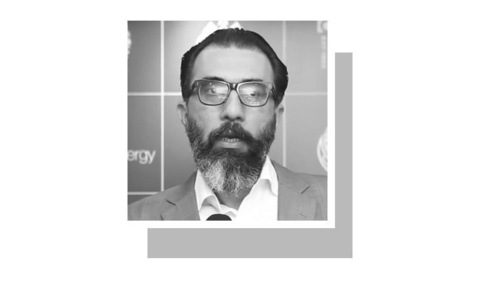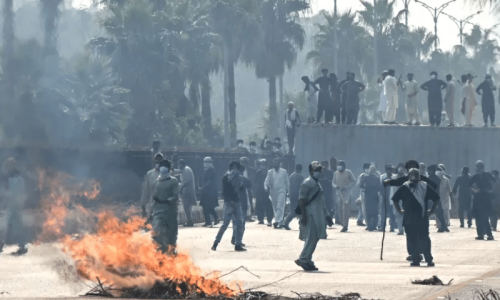NEW YORK: An institutional climate of “Islamophobia” and wariness among many US Arabs and Muslims of the federal government are proving to be substantial barriers to recruiting Arabic speakers into the United States’ counter-terrorism agencies, observers say.
Applications are being received in record numbers, but submissions from those who might be choice picks in the fight against Al Qaeda — such as US-born Arabs and other Muslims — are not being received in anything like the quantity needed by the Central Intelligence Agency (CIA), Federal Bureau of Investigation (FBI), State Department, Department of Homeland Security, and other agencies involved in counter-terrorism.
The commission that investigated the Sept 11, 2001 attacks on the World Trade Centre and Pentagon strongly criticised US intelligence agencies for failing to hire linguists who are fluent in Arabic and other target languages, and for their inability to infiltrate reliable agents into Al Qaeda.
Meanwhile, officials say that about 40 US citizens who sought positions at the nation’s intelligence agencies have been turned away for possible ties to terrorist groups.
“We think terrorist organisations have tried to insinuate people into our hiring pools,” Barry Royden, a 39-year CIA veteran who is a counterintelligence instructor at the agency, said at a national conference on counterintelligence last weekend at Texas A&M University.
But in the opinion of many Arab-American and Muslim-American groups, most of whom spoke with IPS on condition of anonymity, another major reason for the absence of Arabic speakers is the treatment of people in these communities in the months following the 2001 attacks.
This period was marked by the wholesale roundup, arrest and detention of hundreds — and eventually thousands — of Arabs and Muslims across the country. Many were detained for months and treated like criminals, without access to legal counsel, or even to their families.
Some allege they were abused. Most were eventually released without charge. Others were deported, often to home countries where they would face political persecution. Most were immigrants or visitors, but US citizens were also caught up in the fear and hysteria of the time.
An executive with one of the major Arab-American organisations told IPS: “The government wants it both ways. They want us to apply for counter-terrorism jobs and at the same time they’re keeping us under surveillance or sending agents to arrest us.”
“It’s difficult to recruit people to join organisations when they feel besieged by them,” Ibrahim Hooper, a spokesman for the Council on American-Islamic Relations (CAIR), a Washington-based advocacy group, told the Christian Science Monitor.
“The detentions.the foreign policies in the Muslim world, you name it. Muslims are feeling besieged by it these days.”
Despite the ill-feeling, counter-terrorism agencies are reaching out to the Arab-American and Muslim-American communities — and with some success. In the past few years, the CIA has been graduating young spies and analysts in record numbers.
But there is a wide consensus that counter-terrorism agencies still have a very long way to go. Before he stepped down as CIA chief, George Tenet told the 9/11 Commission it would take at least five years to get the agency’s clandestine service back to full speed. Others in the field have said that 10 to 15 years might be more realistic.
The same is true of the FBI. A recent report by the Government Accountability Office found that while the FBI has made progress in staffing to carry out its new counter-terrorism mission, the number of counter-terrorism agents is “still not sufficient to handle the workload.”
The strategic plan that CIA Director Porter J. Goss recently delivered to President Bush would increase clandestine officers and analysts by 50 per cent.
There are a number of obstacles. First, the nation’s counter-terrorism agencies are now competing with one another, and with the private sector, for scarce new talent. Headhunting efforts have probably been exacerbated by the recent announcement by the DOD that it would begin to carry out clandestine operations, formerly the exclusive province of the CIA.
And until recently, in domestic agencies like the FBI, counter-terrorism has not presented a clear career path.
But most experts agree that bureaucracy also plays a large role in impeding recruitment efforts. For example, each applicant the agencies are interested in has to receive a security clearance — one of the most time-consuming bottlenecks in the hiring process. Clearance can take up to a year, experts say.
Some applicants are turned down for straightforward reasons such as a criminal conviction or drug use. But others are rejected for bizarre reasons.—Dawn/The InterPress News Service














































Dear visitor, the comments section is undergoing an overhaul and will return soon.